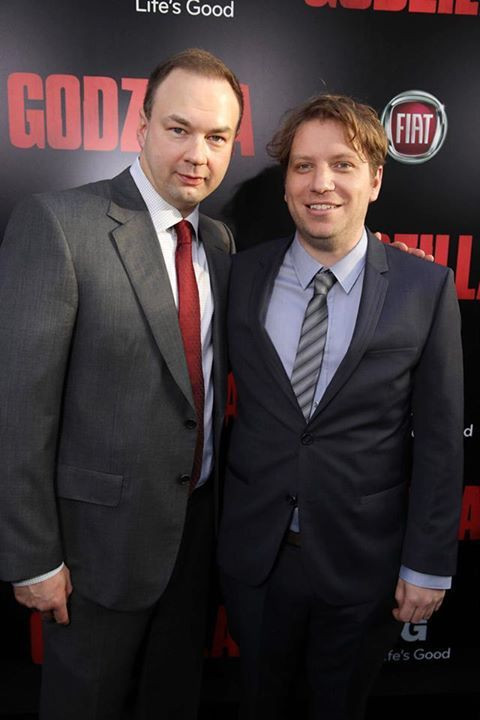
There have been 29 Godzilla movies ... let that sink in for a second. Dating all the way back to 1954, the gargantuan giant reptile has stood tall through the decades as one of the most memorable characters in film history.
But it’s not until Legendary Pictures’ 2014 "Godzilla" that the masses have begun to speak his name again. Plenty of credit has to go to producer Thomas Tull and director Gareth Edwards, whose unique visions have Hollywood on the verge of a monster comeback.
“‘Godzilla’ is the benchmark of monster movies.” Edwards says “If you went around the world with the silhouette of a giant dinosaur looming over a city, everyone would know exactly who it is -- whether they’ve seen a Godzilla movie or not.”
With the 2014 “Godzilla” film being the 30th movie starring the "King of the Monsters," one must wonder why it took so long to get another American-produced flick? Especially since giant monsters and kaijus seem to be ‘hot’ at the moment -- see Legendary Pictures’ “Pacific Rim.”
“We took our time with ‘Pacific Rim’ and we took our time with ‘Godzilla,’” says Tull, who was one of the founding members of Legendary Pictures. “We took our time and wanted to make sure we got it right.”
“Certainly in Hollywood, we’d get ‘I’m not sure anyone cares anymore, how do you make this relevant today.' But Toho was great from the beginning, they believed in what were doing and gave us the creative freedom we needed.”
With the stigma of the 1998 Roland Emmerich “Godzilla” movie hanging over the collective conscious of movie goers, there is understandably some hesitation when another Godzilla film is in the works.
But as Tull points out, another iconic figure had the same troubles when his studio did a certain film in 2005.
“At Legendary we make movies we want to see. I remember our first movie, ‘Batman Begins,’ and at the time there was a lot of [preconceptions] about Batman back then.”
Of course, Tull is referring to the 1997 film “Batman and Robin.” Universally panned, it would take almost 10 years for Hollywood to revisit Gotham city. With Warner Bros. backing, and Christopher Nolan’s direction, Batman is again a box office smash.
So what’s the recipe for success with movies based on beloved characters?
“It’s about the execution, we want to make sure from the first teaser that we show the fans that we are also fans.” Tull reveals.
It also helps to have a visionary director who gets the source material and Legendary certainly got one with Edwards.
“We wanted a fresh perspective. I was blown away by ‘Monsters’ and there was something in it that grabbed me. And when we sat down there was ‘this fairy dust’ he has … He’s the only director we talked to and offered it to.”
With “Monsters” being his first film, Edwards’ second movie is on a much grander scale, and has a lot at stake for his career and Legendary Pictures. It’s a risk that’s warranted as Edwards’ has a knack for crafting masterful set pieces -- I raved about them in my review.
And his ability to find a story underneath the monster mashing was not lost on those the director spoke to.
“The idea of man versus nature was a dominant theme in the film,” Edwards notes. “Monsters have always been metaphors for something else. They represent the darker aspects of our nature and our fears of what we can’t control.”
“He [Godzilla] really represents nature and the world. And the MUTOs represent our abusive nature with Godzilla being the balance,” Edwards says. “Godzilla is nature’s retribution.”
It’s no wonder Tull gladly bragged about every first choice actor they wanted agreed to do this film. It was this element to Edwards’ storytelling to bring aboard Elizabeth Olsen and Aaron Taylor-Johnson. And it was the collaborative effort of Edwards and Legendary Pictures that has revived the Godzilla franchise.
So what’s the possibility of a sequel? Tull shifted his seat and knocked on the table when he answered:
“We don’t use the ‘s’ word until the movie comes out because the movie gods will be very angry.”
But from what I’ve seen, the movie gods will shine their favor on this film.
© 2025 Latin Times. All rights reserved. Do not reproduce without permission.






